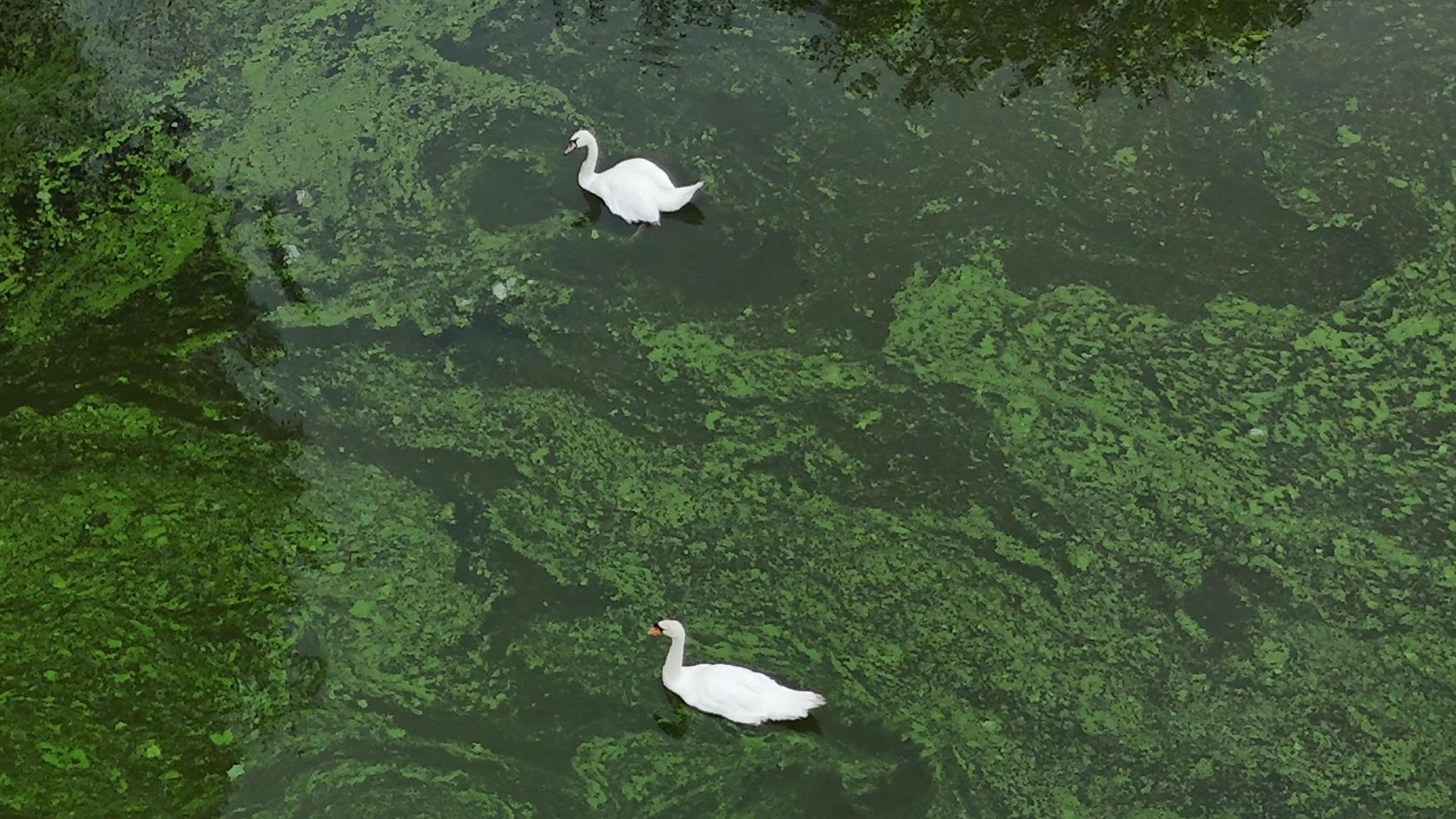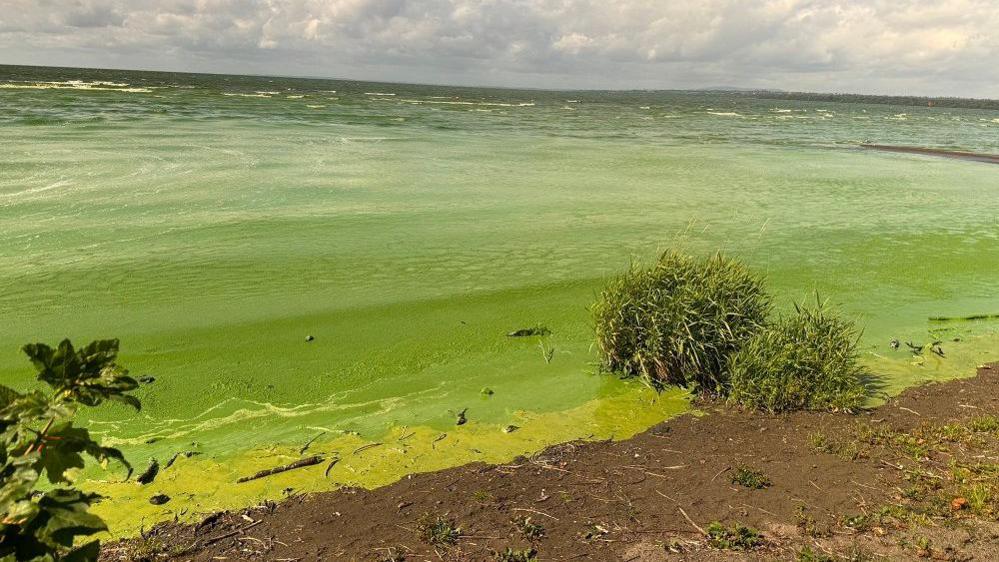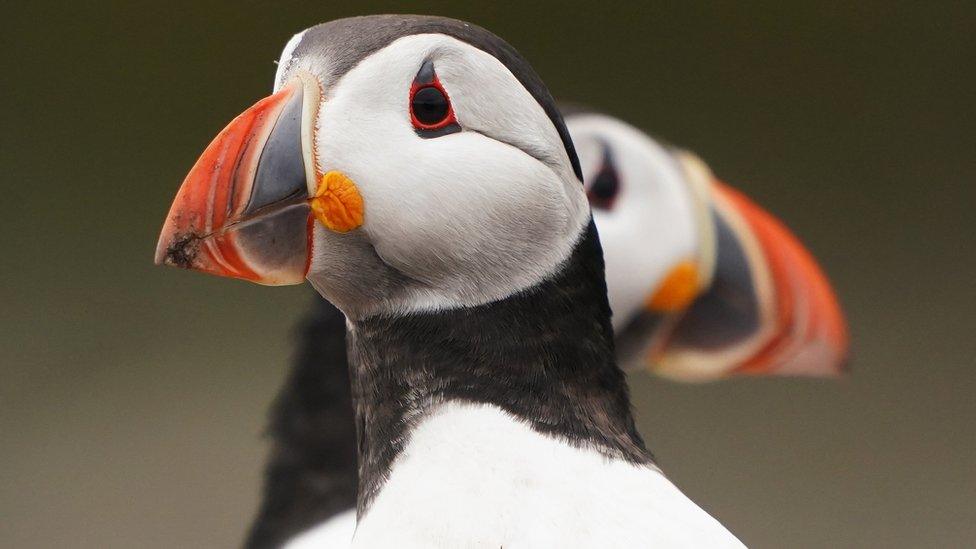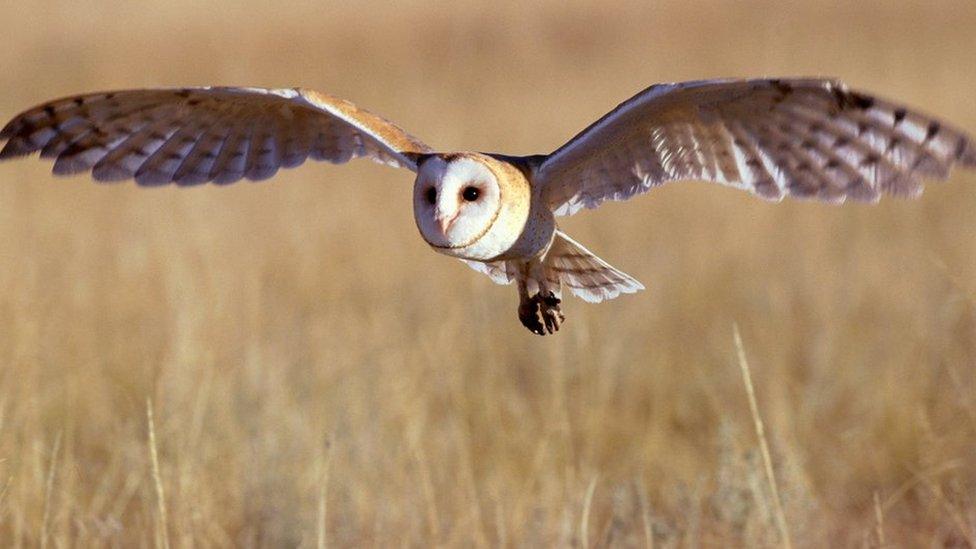Northern Ireland's nature facing 'unsustainable' pressure

The OEP's top scientist said Lough Neagh was a "very visible sign of deterioration" but added other NI waterways are also badly affected by pollution
- Published
Nature in Northern Ireland is under "unsustainable" pressure and action is needed "urgently and decisively" to protect and restore the environment, a watchdog has said.
The Office for Environmental Protection (OEP) has published a review of the drivers and pressures affecting biodiversity in Northern Ireland., external
The principal pressures it identifies are land use change and pollution, closely linked to agricultural intensification.
It says government policies on nature recovery and nutrient management must be implemented to help address the challenges.

Blue-green algae was present at Rea's Wood along the shore of Lough Neagh in August
The OEP has prioritised three areas for action:
Reduction of pollution by nutrients from farming and sewage
Change of land use to restore habitats
Reduction of material and ecological footprints
Excess nutrients from fertiliser and animal waste in farming and from sewage are the main forms of pollution which are having an impact.
The report also finds waste management, resource extraction, urban development and chemical pollution are playing a part.
Research suggests Northern Ireland has lost 50% of its biodiversity based on a 1970s baseline, with ecosystems like rivers, lakes and other freshwater bodies also failing to meet good or high ecological status.
The OEP's chief scientific officer Robbie McDonald said it had examined pressures on the environment in Northern Ireland over generations.
"The very, very visible sign of deterioration has been in Lough Neagh," he said.
"But beneath the surface and across all of the waterways and land of Northern Ireland, this process has been going on for decades.
"So our contribution here is to pull together all of that evidence about the priority species and habitats we have here and to look at the factors that have led to their decline."

Robbie McDonald is the OEP's chief scientific officer
Agriculture, Environment and Rural Affairs Minister Andrew Muir said: “It is clear that we must change practices which contribute to the loss of our valuable habitats."
He called the recommendations "unsurprising".
"We as government must continue to provide both the right policies and financial support to place us on the correct path to reverse environmental degradation," he continued.
“In recent months, I have made significant progress by receiving approval for the Lough Neagh Report and Action Plan, as well as the Environmental Improvement Plan, serving as Northern Ireland’s first Environment Strategy."
'Heavy toll' on future generations
The report says the agri-industry is "making unsustainable demands on the land" and that the nutrient surplus is also unsustainable for the environment.
The chairman of the OEP Dame Glenys Stacey said nature underpinned the Northern Ireland economy and so protecting the natural environment was fundamental to achieving economic and social goals.
"More and more has been demanded of the environment over many years, and it is now clear that more pressure has been applied than the land and water can bear," she said.
"Government must act urgently and decisively, not only to reverse a lifetime of environmental degradation and to restore the biodiversity of Northern Ireland's habitats and species, but also to ensure a sustainable agri-food industry and wider economy.
"Failure to do so risks a heavy toll on the prosperity and well-being of future generations."
Related topics
- Published28 September 2023

- Published20 September 2024

- Published11 February 2024
